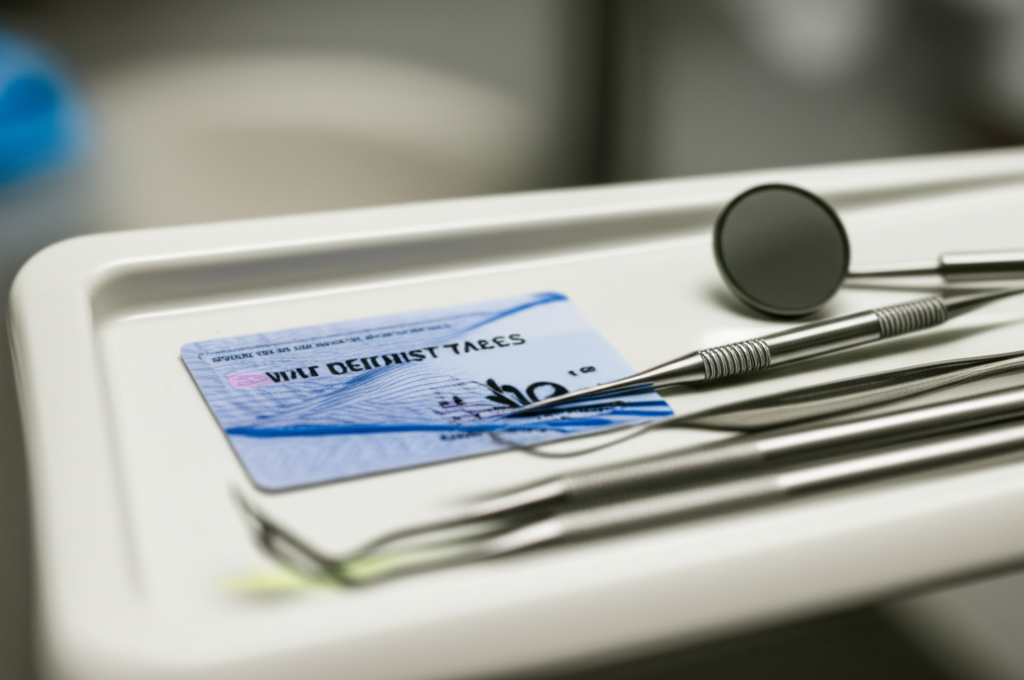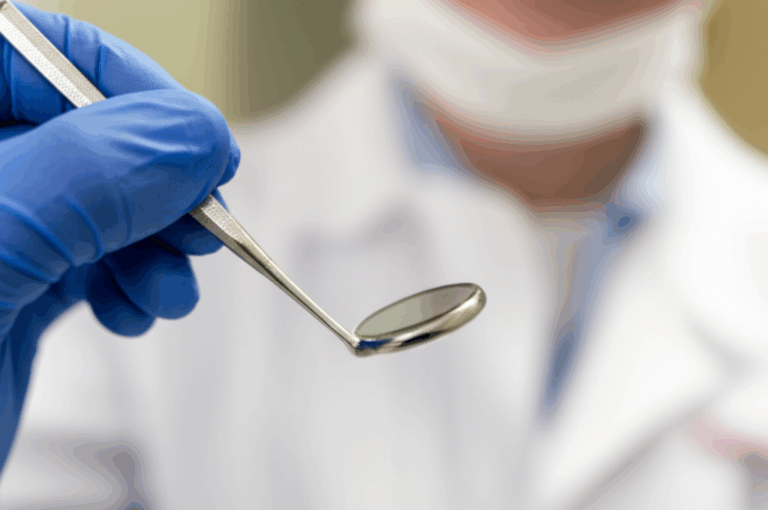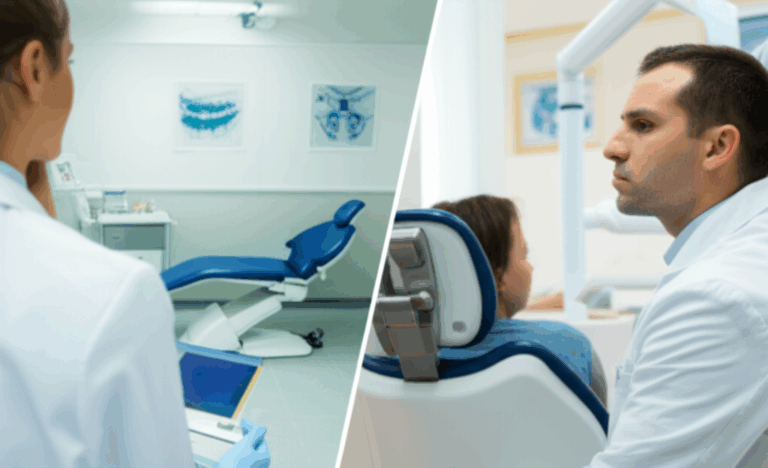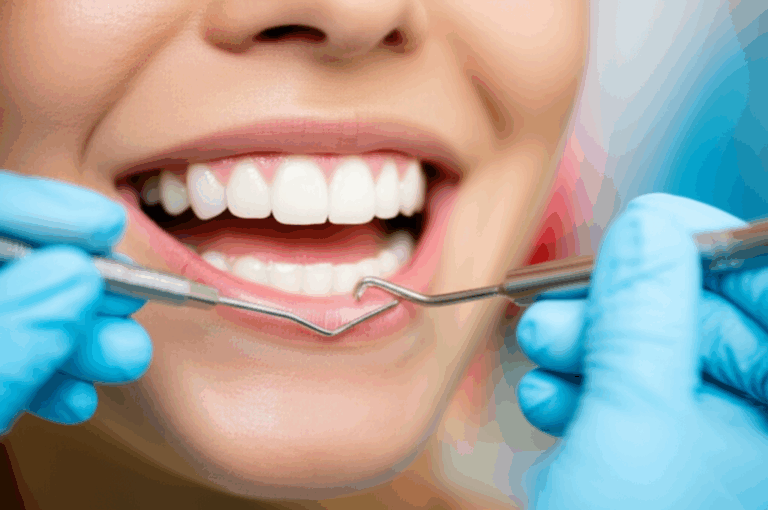
Is a Dentist a Doctorate Degree? Understanding DDS, DMD, and Dental Education
Whether you want to be a dentist, wonder what the letters after your dentist’s name mean, or you’re just sorting out a debate, you may have asked: Is a dentist a doctorate degree? Basically, can that nice person in the white coat really be called “Doctor” just like a medical doctor?
Lots of people ask this, and it’s a smart thing to wonder about. Knowing what DDS and DMD really mean can help you feel comfortable about your health care—and it might make you respect your dentist’s training even more.
Let’s break it down and make it simple.
Table of Contents
- Yes, Dentists Have Doctorate Degrees
- The Two Main Dental Doctorates: DDS vs. DMD
- The Long Road to Becoming a Dentist
- Dental Degrees Compared to Other Advanced Degrees
- Licenses and Learning After School
- What Does a Dental Doctorate Mean for a Career?
- Frequently Asked Questions (FAQs)
- Conclusion: Dentists Are Highly Trained Healthcare Pros
Yes, Dentists Have Doctorate Degrees
Let’s get right to the point: Yes, dentists in the US and Canada have doctorate degrees. The main kinds you see are DDS (Doctor of Dental Surgery) and DMD (Doctor of Medicine in Dentistry or Doctor of Dental Medicine). These are called professional doctorates.
But what’s a “doctorate” in this case? There are two kinds of doctorate degrees: professional doctorates (like DDS and MD) which teach you how to take care of patients, and research doctorates (like PhD) which focus on doing new research. Dentists are doctors because they finish a tough, approved program that trains them to care for your teeth and mouth.
So, when your dentist calls herself “Doctor,” it’s not just being polite. She’s earned it. Groups like the American Dental Association and the American Medical Association agree that DDS and DMD holders should be called Doctor.
The Two Main Dental Doctorates: DDS vs. DMD
This is where some people get mixed up. You might see DDS on one dentist’s business card and DMD on another’s, even if they both do the same things. What’s the difference?
DDS: Doctor of Dental Surgery
DDS was first given out by the Baltimore College of Dental Surgery in 1840 (the first real dental school in the US).
DMD: Doctor of Medicine in Dentistry / Doctor of Dental Medicine
DMD started at Harvard, which wanted the words on the diploma in Latin (“Dentariae Medicinae Doctor”). Some other schools picked this name too.
Bottom Line: No Real Difference
Think of DDS and DMD as two shirts made from the same material. The only difference is the label. The American Dental Association says these two degrees are exactly the same—the classes, hands-on training, and what people think of them. It’s up to each school which name they give, but all are held to the same high standard.
You’ll see both in North America. About two-thirds of schools give DDS, the rest give DMD—but grads all walk away with the same skills.
The Long Road to Becoming a Dentist
So, how do you become a dental doctor? It’s a long journey and takes many years.
College First (At Least 3–4 Years)
Future dentists must finish college first, usually with lots of science classes like biology, chemistry, and physics. You don’t have to major in science, as long as you take the right classes.
Students are also expected to spend time shadowing dentists, volunteering, or working in health care. Dental schools like students who are well rounded and work hard.
The Dental Admissions Test (DAT)
The DAT is a tough test covering science, reading, and perceptual skills. Doing well is key to getting into dental school.
Dental School (4 Years of Hard Work)
Once you get in, you’re in for four years of science classes and hands-on training.
Science Coursework
- Anatomy (studying body parts, especially the head and neck)
- Physiology (how the body works)
- Microbiology (germs and diseases)
- Pharmacology (medicines used in dental care)
- Pathology (what makes mouths and teeth sick)
Learning by Doing
- Diagnosing and planning treatment
- Cleaning, fillings, and other basic care
- Gum care
- Tooth pulling (extractions) and simple surgery
- Making dentures and crowns
- Root canals
- Children’s dental care
- Treating real patients under supervision
Through it all, dental students help treat real people, learning by doing.
Ethics and safe care are always important parts of the program.
More School (Optional, For Some)
Many dentists decide to get more training after dental school:
- General Practice Residency (GPR) or Advanced Education in General Dentistry (AEGD): Extra time learning more skills, sometimes in hospitals.
- Specialty Training: Dentists can become specialists (like for braces, root canals, oral surgery, and so on). This usually means 2–6 extra years.
There are 12 official dental specialties, each needing more training beyond the DDS or DMD.
All told: It usually takes at least 8 years after high school to become a dentist—more if you want to specialize.
Dental Degrees Compared to Other Advanced Degrees
A lot of people wonder how DDS or DMD compares to an MD or a PhD. Let’s put it simply.
DDS/DMD vs. Medical Doctor (MD): Pretty Much Equal
Similarities
- Both dentists (DDS/DMD) and medical doctors (MD/DO) do four years of college and must fight hard to get in.
- Both do four years of tough school after college—lots of science and practice with patients.
- Both have to pass big national tests and get licensed.
- Both can diagnose, prescribe, and treat patients on their own.
Differences
- Medical doctors treat the whole body; dental doctors focus on mouths and jaws.
- Medical doctors nearly always do extra years in hospitals after medical school; dentists sometimes do post-grad training, but it’s not required unless specializing.
Both are tough jobs with lots of respect. The real difference is what they focus on.
DDS/DMD vs. PhD: Patient Care vs. Research
A PhD is for research—it involves lots of study, experiments, and a big final project (thesis).
A DDS/DMD is a professional degree—you learn how to help real patients, not just study books.
Some schools offer both (DDS/PhD) if you want to work with patients and do research.
Licenses and Learning After School
Getting your degree is just the start. Dentists must get a license before they can treat patients.
National Board Dental Exams (NBDE)
Dental grads have to pass tough written and practical state or national tests. In the US, this is the NBDE, or a newer, combined test in some places.
Different State Rules
Each state or Canadian province has its own dental board which checks credentials and often wants a separate clinic exam. You can’t work as a dentist without this.
Always Learning More
Dental care is always getting better, with new stuff all the time. Dentists must take regular classes to keep their license and stay up to date for their patients.
What Does a Dental Doctorate Mean for a Career?
Dentists who finish their DDS or DMD and get a license are:
- Independent Health Care Providers: They can examine, treat, and prevent teeth and mouth problems all by themselves.
- Trusted Professionals: The “Doctor” title means your dentist has finished a long, tough education and is trusted with your health.
- Helping Outside the Clinic: Some dentists also work on bigger public health topics, do research, or teach new dentists.
- Go-To Advisors: You can count on your dentist to give advice on anything from regular check-ups to bigger work like veneers, dental implants, or how to avoid problems.
That’s why dentists are respected both inside and outside the medical world.
Frequently Asked Questions (FAQs)
Can a DDS holder be called “Doctor”?
Yes. Whether DDS or DMD, both are doctors. It’s not just tradition—top groups like the ADA and AMA say so.
Is a DMD degree better than a DDS?
Nope. Both mean the same thing and show you got the same training and chances in your job.
How long does it take to become a dentist after high school?
At least 8 years:
- 4 years college
- 4 years dental school
- Add 2–6 more for any specialty training
Are dentists considered medical doctors?
Dentists are doctors, but not “medical doctors” (MDs). Their training is all about the mouth, teeth, and jaw. But their job is just as important—mouth health matters for your whole body.
What’s the highest degree you can get in dentistry?
- DDS or DMD: Needed to work as a dentist
- Specialty Certificates: For things like braces or oral surgery
- Doctor of Science in Dentistry (DScD), PhD: For research or teaching careers
- Dual Degrees: Like DDS/PhD, for doing both clinic work and research
A Day in the Life: What Does a Dental Doctorate Mean for You?
Let’s see what your dentist’s education means for you.
Imagine you have a toothache and go to your dentist. She finds the problem, explains it in simple words, and gives you options for fixing it. Maybe you need a crown or implant, and she helps you choose what’s best.
Every suggestion she gives comes from years of hands-on learning, treating many people, and studying teeth and mouths in great detail.
And if you need something more complicated, she might send you to a specialist, or partner with a crown and bridge lab or an implant lab. Every step shows the teamwork and training that only doctorate-level providers have.
Modern Dental Technology: How Dentists Keep Getting Better
Dentistry keeps changing. Thanks to new digital tools, better materials, and custom-made crowns and bridges, care just gets better all the time. Dentists work with labs focused on things like ceramic coatings or digital dental work, to make sure you get top results—whether for a filling or a whole new smile.
To keep up, dentists always have to keep learning—just like other doctors with doctorate degrees.
Key Takeaways: What This Means for You
Let’s sum it up:
- Dentists in the US and Canada have either a DDS or DMD degree—both are doctorate-level.
- Becoming a dentist is long, tough, and requires science learning just like other doctors.
- It’s right to call your dentist “Doctor.”
- Some dentists do extra training, but every general dentist must finish the main doctorate program.
- Dentists must keep learning new skills to keep their license and provide the best care.
Your Next Steps
So, what should you do now?
- Don’t be shy—ask your dentist questions. Now you know how much they’ve studied, so feel safe about your care.
- See your dentist regularly. It helps catch problems early.
- Trust your care team. When your dentist explains options, remember their big training background.
- If you want to be a dentist yourself, know it’s hard work but very rewarding. You’ll be joining trusted “doctors” who really help people.
- Whether you need a cleaning or something complicated, remember your dentist and their partners—including expert dental labs—are here for you.
Final Thought: Dentists Earn Their Doctor Title
Dentistry isn’t just fixing teeth—it means years of learning, steady hands, sharp eyes, and a real wish to help. So next time you see “DDS” or “DMD” at your dentist’s office, you’ll know it means they’re true doctors, looking out for your smile and your health.
Still curious? Don’t be afraid to ask about your dentist’s training or about any treatment. The more you know, the better choices you make!
Sources:
- American Dental Association (ADA)
- American Dental Education Association (ADEA)
- United States Bureau of Labor Statistics (BLS)
- Commission on Dental Accreditation (CODA)
- World Dental Federation (FDI)
(This article is for information only and should not replace professional medical advice. Always talk to your dentist about dental school or your health if you have questions.)








